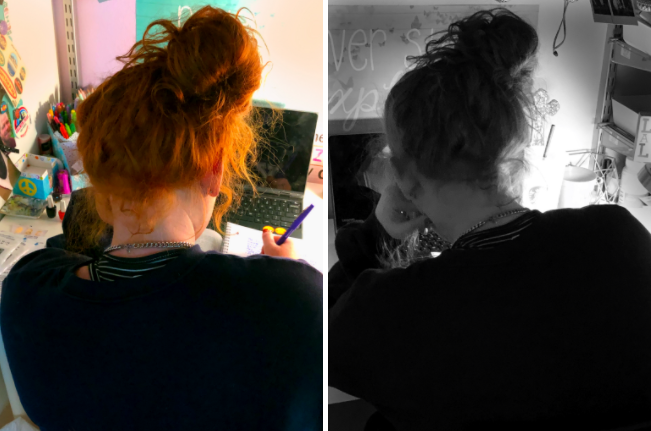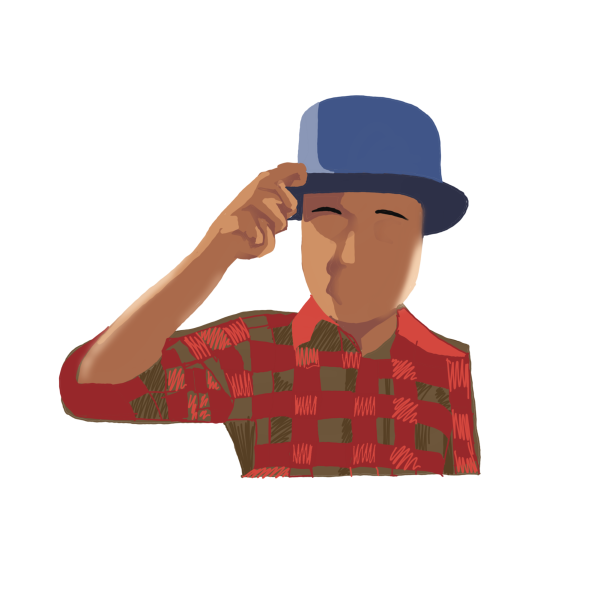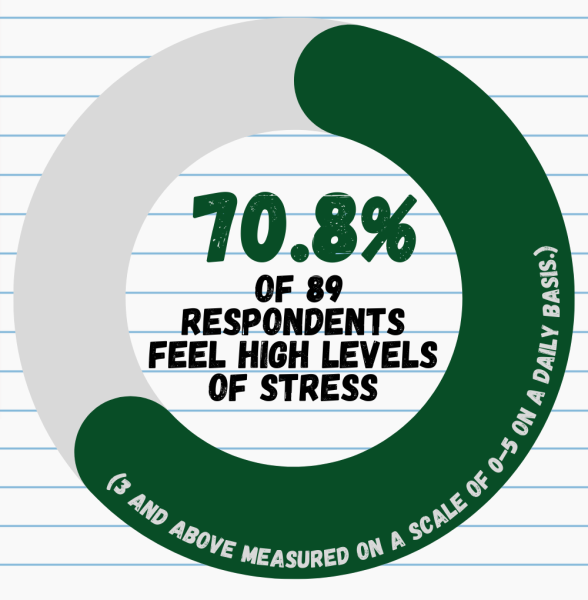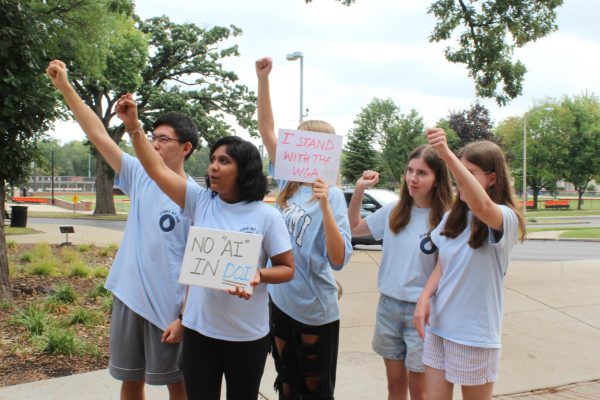Calm Amidst a Storm?: The Effects of E-Learning on Social Anxiety
Some students feel that e-learning has lifted anxiety from them; however, for others, the weight on their shoulders has gotten heavier.
“An intense, persistent fear of being watched and judged by others.” That’s the scientific definition of social anxiety, according to the National Institute of Mental Health. It’s a definition that manages to encapsulate the many different ways that social anxiety can manifest from person to person.
However, on an individual level, those 11 words can’t even begin to capture the nature of social anxiety. That definition doesn’t touch on the nights when I lie awake sleepless, replaying some personal blunder over and over, tallying in my mind a list of all the terrible things people might think of me now. It can’t describe the way it feels to long for connection and friendship but remain so petrified that people will find me clingy or annoying that I never actually seek anyone out.
It’s a constant struggle for validation and acceptance that never ends because sometimes each new day just feels like an opportunity to mess everything up again.
It was with this mindset that I began e-learning last spring, and ironically, I felt liberated by stay-at-home orders. All of a sudden, I didn’t have to worry about all of the potential social engagements I was being left out of, and I was part of so few conversations there was nearly nothing to pick apart in my brain late at night. Group projects were a thing of the past, and I was free to binge-watch “The Umbrella Academy” during my lunch period without nervously wondering if others might find it lame. I know it sounds strange to say that in the middle of a quarantine my mental health was rapidly improving, but that’s the truth.
However, for many students at LHS, the opposite has actually been the case. In talking with a few friends recently, one shared that having classes on Zoom actually increases their social anxiety because the video format draws attention to their appearance, something many high school students are already self-conscious about. Others mentioned that the dynamics of breakout rooms can increase one’s hesitancy to share ideas or ask questions because students typically communicate less in breakout rooms, making those who do feel awkward.

Even more troubling, however, is the testimony of psychologists from across the nation reported in a recent Healthline article that indicates that quarantine, and by extension, e-learning, may actually cause social anxiety in individuals who haven’t grappled with these feelings before. According to Jana Abelovská, superintendent pharmacist of an online pharmaceutical company in the U.K., “The change from having a highly social work and personal life to nothing at all can be really detrimental to a person’s mental health, and may cause many people who are normally extroverted to feel like they are becoming introverted and not wanting to mix with others.”
Even those like myself, who find e-learning to be a force that mitigates their social anxiety, are actually being hurt by the sharp decrease in social interaction of the past few months. Medical News Today suggests that, while quarantine, and by extension, e-learning, may provide temporary relief from social anxiety, increased isolation is ultimately hindering the progress individuals can make in overcoming their anxiety.
As stated in the article, one of the most effective ways to overcome social anxiety is to expose yourself to social situations that typically make you nervous as a method of proving to yourself that you actually have nothing to fear when interacting with others. However, with opportunities for connection greatly reduced, it’s disturbingly easy to start believing that only in loneliness can one reach happiness.
Not all is doom and gloom, however. The abundance of free time that has come with e-learning leaves plenty of room for introspection and the development of coping mechanisms. The Mayo Clinic reports that simple activities such as breathing techniques and regularly spending time outside can greatly reduce all types of anxiety and might be a helpful way to ground yourself in a time of uncertainty.
In addition, for those looking to avoid increased social anxiety once schools reopen, maintaining contact with those you feel most comfortable with, even through text messaging or FaceTime, can reaffirm a positive outlook towards social interactions, reducing the emotional whiplash that might accompany going back to school.
The end of e-learning may be a rude awakening or a panacea for social anxiety, but either way, we’re all in it together.
Note: Anxiety is something that no one should go through alone. For LHS students, LSTs, school counselors and social workers are still available during e-learning, so make sure to reach out to them if you’re looking for resources or support in reducing anxiety.














